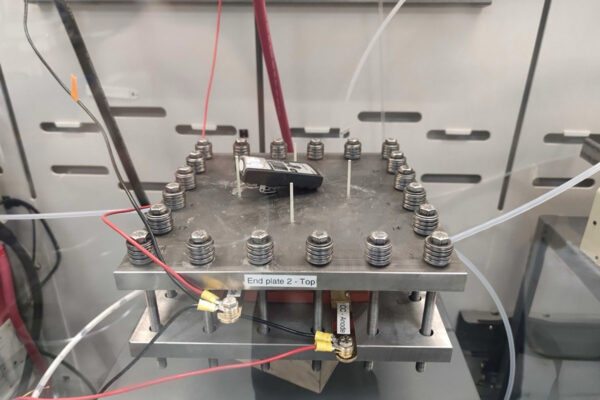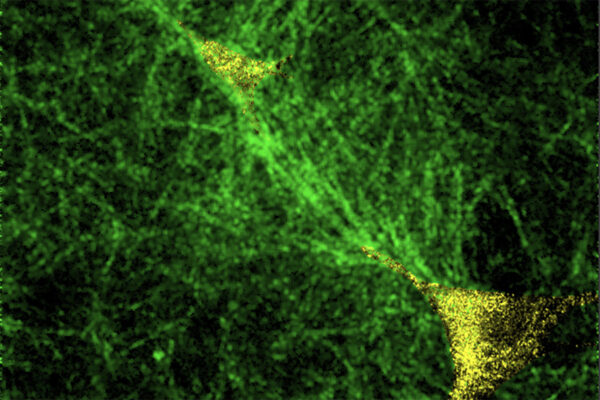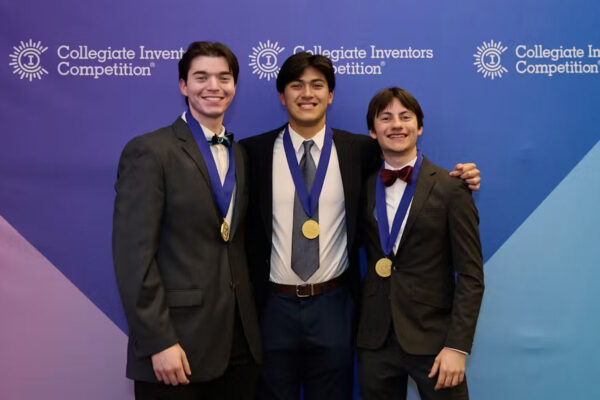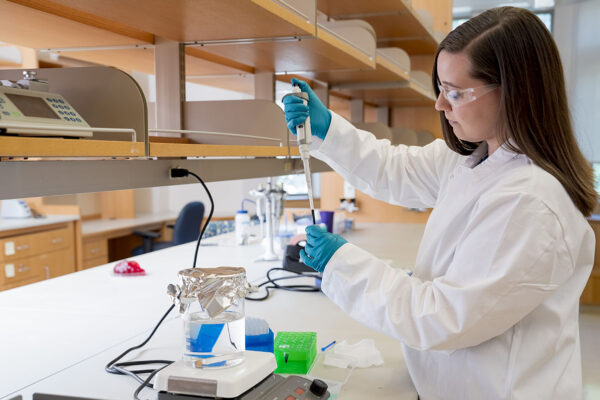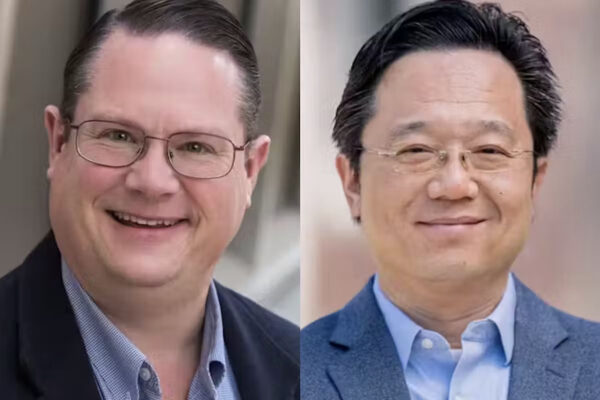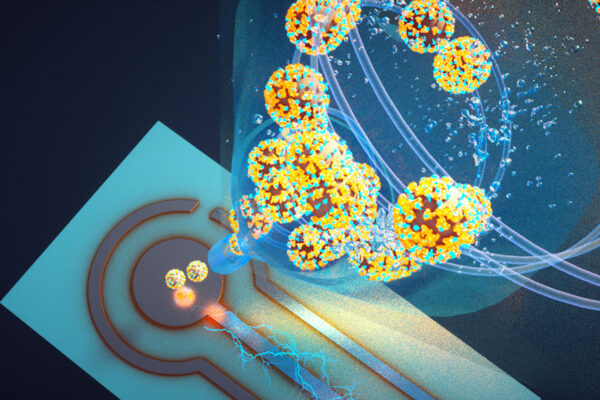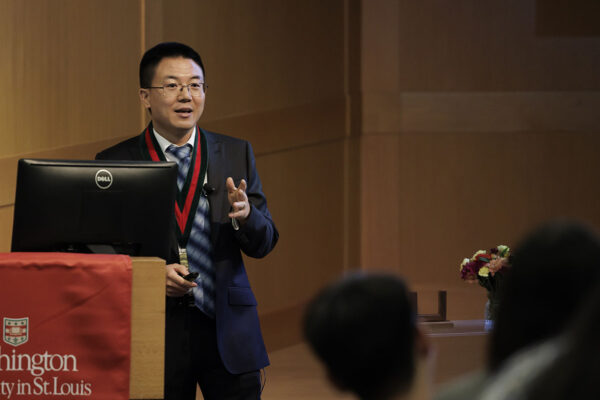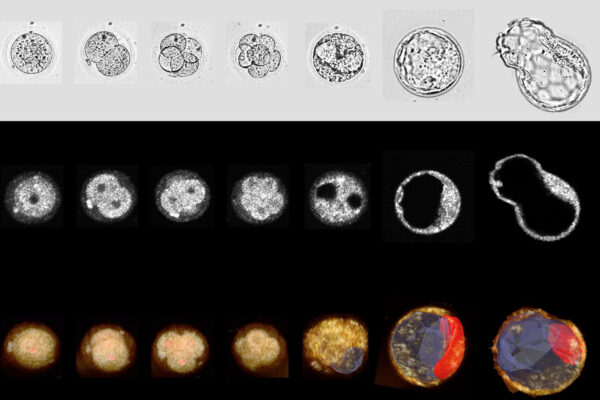Inexpensive materials transform waste carbon into energy-rich compounds
Research from engineers at Washington University in St. Louis will help turn waste gas into energy-rich compounds for sustainable manufacturing.
Prime time for fiber optics to take a deep dive into brain circuits
A group of researchers from Washington University in St. Louis has created a new kind of fiber-optic device to manipulate neural activity deep in the brain.
Tissue ‘tipping points’: How cells collectively switch from healthy to disease states
In recent research, Guy Genin, a biomedical engineer at Washington University in St. Louis, has identified phase transitions in living tissue that could explain why fibrosis suddenly accelerates.
WashU engineering alumni earn first prize at inventor’s competition
Three engineering alumni who recently earned their degrees from Washington University in St. Louis won first place at the Collegiate Inventor’s Competition with a tool to help those with food allergies.
Engineers create hydrogels to monitor activity in the body
Researchers at Washington University in St. Louis have created injectable bioelectric hydrogels for use in monitoring biological activity such as heart rate.
WashU faculty research honored with ‘test of time’ award
Computer science researchers at Washington University in St. Louis were honored for a paper that has made a longstanding impact on the field of embedded software.
Disrupting infectious diseases
With a grant from the Advanced Research Projects Agency for Health, a multi-institutional research team led by scientists at Virginia Tech and Washington University in St. Louis will develop an indoor air device to disrupt transmission of infectious disease.
Zhang named Francis F. Ahmann Professor
Fuzhong Zhang, a renowned expert in synthetic biology, has been named the Francis F. Ahmann Professor in the McKelvey School of Engineering at Washington University in St. Louis.
Tips for biomolecular engineering can be found in early Earth
Biomedical engineers at the McKelvey School of Engineering at Washington University in St. Louis are tackling the question of how oxygenation happened on primordial earth in a recent study published in the Proceedings of the National Academy of Sciences.
An inside look at the earliest stage of life
Researchers at Washington University in St. Louis have a developed a way to monitor mouse embryo development and predict successful blastocyst formation. The results of the study could help improve success rates of in vitro fertilization.
Older Stories
